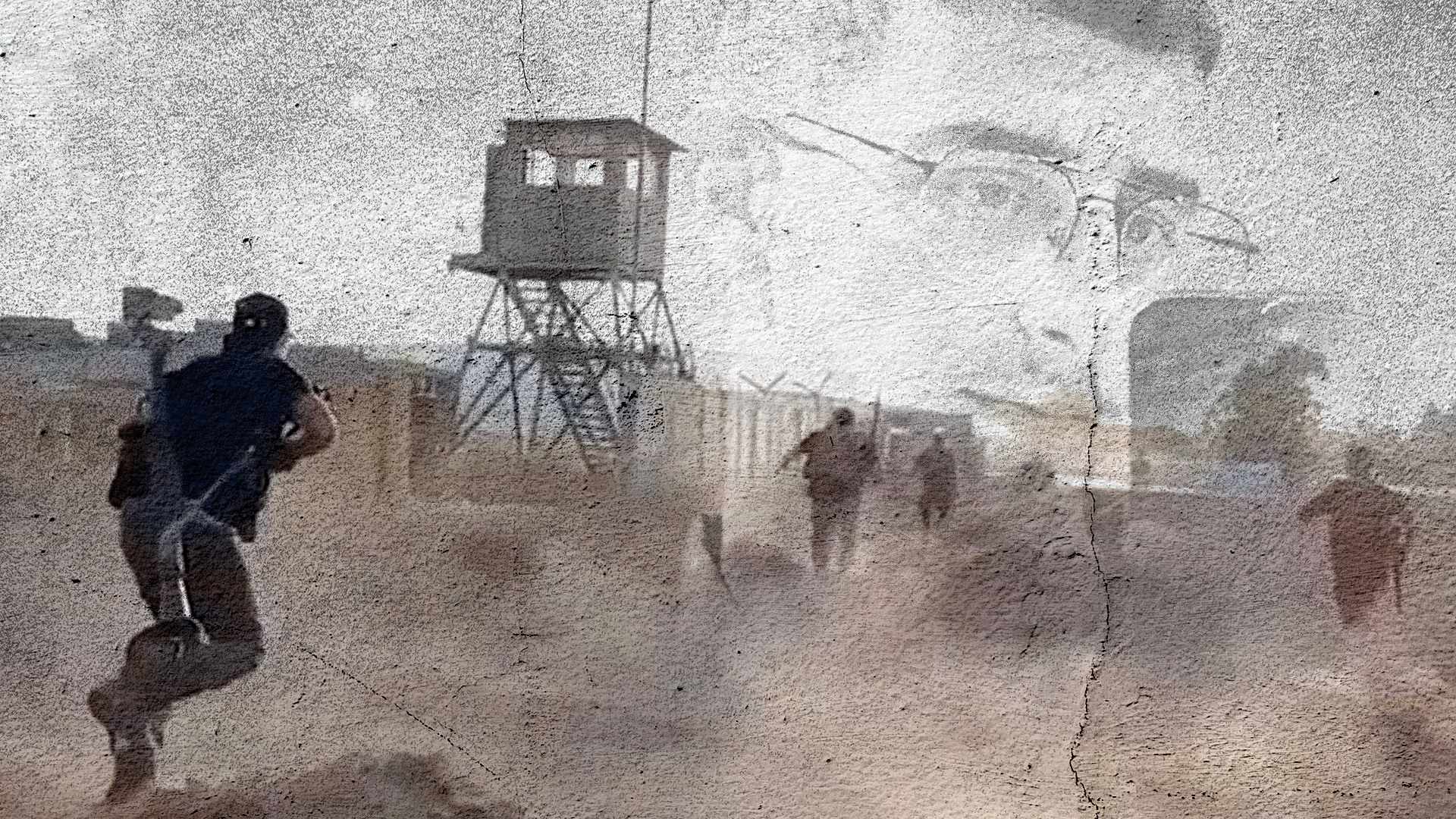'It is important for us to raise a different voice'
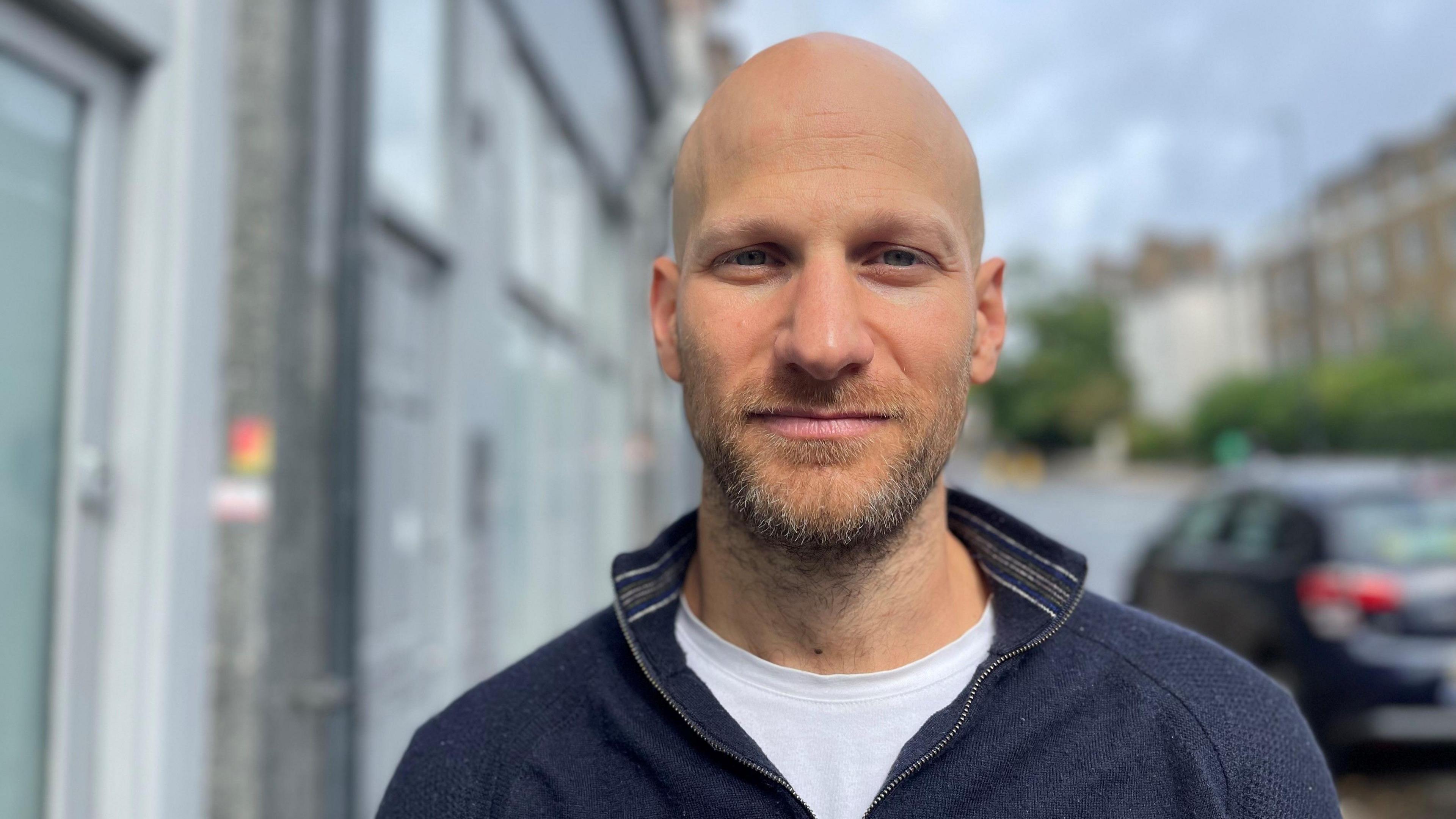
Magen Inon hopes to continue his parents' legacy for peace
- Published
For the past year London’s Palestinian and Israeli communities have been living with the fallout of a conflict thousands of miles away yet all too close to home.
On 7 October 2023 Hamas operatives from Gaza invaded Israel, killing more than 1,000 Israelis and taking around 250 hostage.
Israel has responded by bombing Gaza, leaving at least 41,000 Palestinians dead.
As conflict escalates across the Middle East, I met two Londoners - one Israeli and one Palestinian - who shared with me their grief and trauma and thoughts for the future, one year on.
Magen Inon, 41, a lecturer lives in London with his family.
His parents were killed on 7 October at their home in a smallholding in Israel, close to the border with Gaza.
"My parents sent a message saying they can hear gunshots, that they are in the safe room. That was the last message we got from them."
His parents' home was burned down.
His father's death was confirmed soon after but not his mother's.
"We didn't have confirmation that my mum died until August. It took months.
"My mum was supposedly the last missing person from October the 7th.
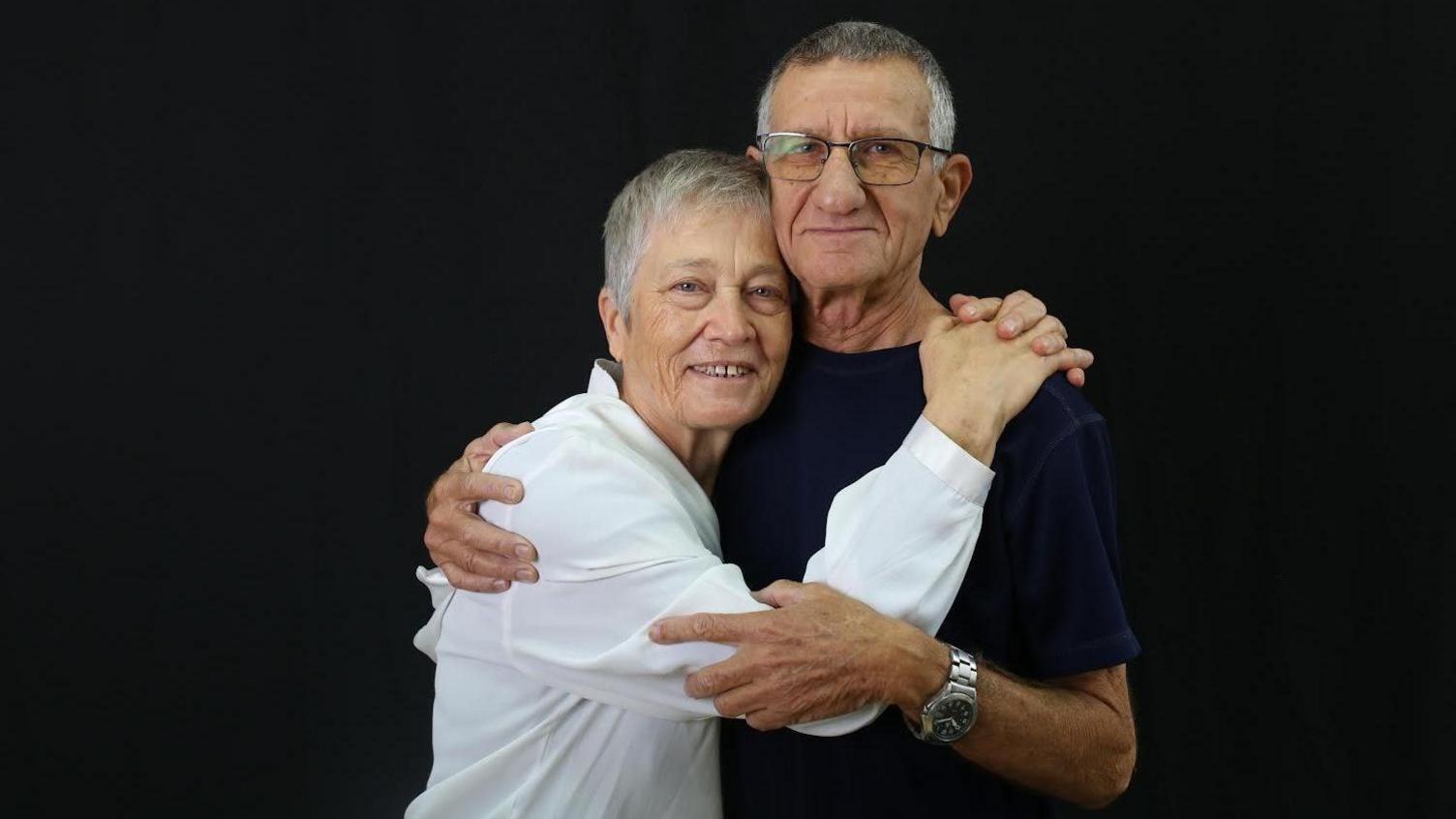
Bilha and Yakov Inon were killed on 7 October 2023
What is Hezbollah and why is Israel attacking Lebanon?
- Published14 February
Israel-Gaza ceasefire: Is a deal still possible?
- Published24 August 2024
Since then he has dedicated his time trying to continue what he believes was his parents' legacy: to stop the war, call for the return of the hostages and call for humanitarian aid to go into Gaza.
"My parents, they raised us in a house that was always open to everyone. It didn't matter their group identity, their religion, their mother tongue... it was natural for us."
But in the immediate aftermath of 7 October he and his four siblings felt some people were "trying to hijack our pain in order to call for revenge and call for continuous violence".
"It was very important for us to raise a different voice."
He has been holding talks at universities with like-minded Palestinian counterparts where possible, calling for a ceasefire, an end to the war and to send humanitarian aid to Gaza.
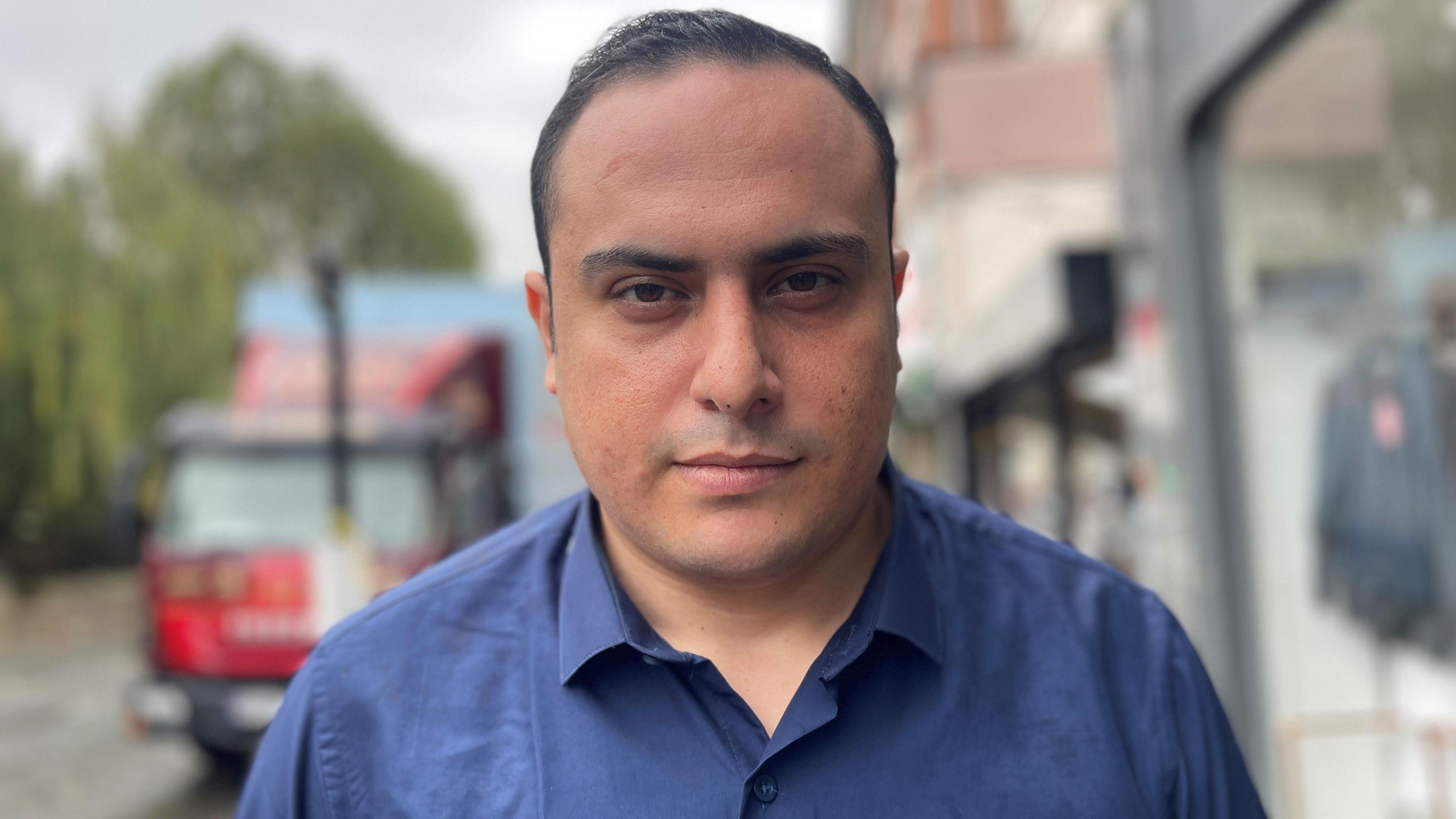
Ahmed Alnaouq lost more than 21 close family members in an Israeli bombing.
Journalist Ahmed Alnaouq, 30, grew up in Gaza but came to the UK as a student five years ago.
He also lives in London, with his wife.
He lost 21 close family members on 22 October when his family home was bombed.
"Israel dropped a bomb on my house, killing my father, my two brothers, my three sisters, my 14 nieces and nephews, and my cousin.
"They were in Deir Al Balah in the south of the Gaza strip. It was designated a 'safe area' at the time by the Israelis."
Since then, he says, he has lost more relatives.
"I have lost so many family members. I am sincerely and genuinely telling you that I don't know how many family members I lost."
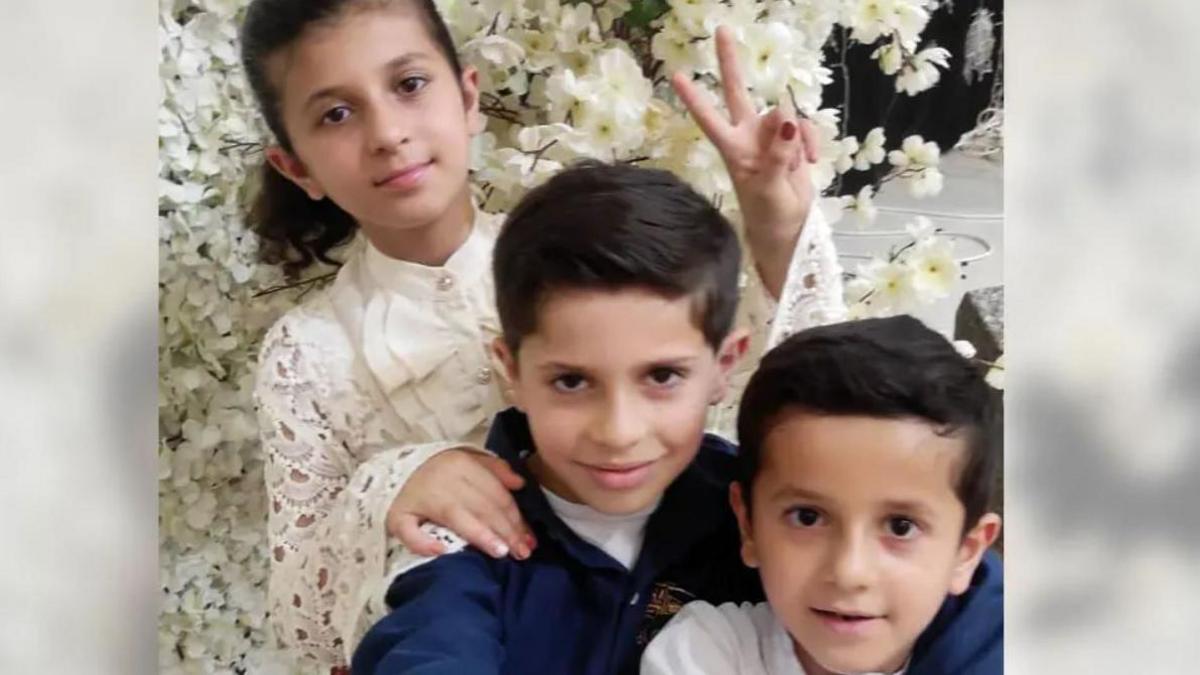
Ahmed's niece and two nephews Tamim, Mohamad and Malak Bashir are among thousands of children who have been killed
Ahmed runs We are Not Numbers, a youth-led Palestinian non-profit project which tells the stories behind the numbers of Palestinians in the news.
He is also co-founder of Across The Wall with Israeli journalist Yuval Abraham, a writing project started in the Gaza Strip in Hebrew and Arabic which, before this conflict, aimed to help Israelis understand the human stories behind what is happening behind the wall which separates Gaza and Israel.
He still very much believes in peace, but adds "right now it seems very dark, very bleak".
"The only hope I have, the only light at the end of the tunnel I can see, is the good people from all over the world who still care about the Palestinians."
'We are all brothers and sisters'
Both of their lives have changed irrevocably since this time last year.
"The problem is that it is not ending. It is ongoing. It is continuous and we don't know when it will end or if it will end," said Ahmed.
"We have been living a series of horrors and trauma that I believe we will never heal from. Never.
"I think the trauma we are living right now we will pass it to our children and grandchildren."
Magen says he often feels anxious when meeting Palestinians, but he knows that despite the divide, "we're suffering from the same conflict".
He said: "If you share the same values, you can move past that and actually become partners and I've had that experience a few times over the last year with quite a few Palestinian partners I'm working with.
He would like to continue to be a peacemaker.
"Once you start thinking about 'what's the world I want to create for my kids? what's the future I want them to have?' rather than 'how do I avenge my loved ones' death?' which I think takes us in the wrong direction.
"It's much easier to find common ground."
Despite the trauma of losing so many family members , Ahmed says the past cannot be changed.
Instead he believes it is more important to focus on the future.
"We are all brothers and sisters, in humanity. What's happening in Gaza is a war against humanity.
"All of us should work together to end this... but also all wars everywhere."
Listen to the best of BBC Radio London on Sounds and follow BBC London on Facebook, external, X, external, and Instagram, external. Send your story ideas to hello.bbclondon@bbc.co.uk, external
Related stories
- Published6 November 2023
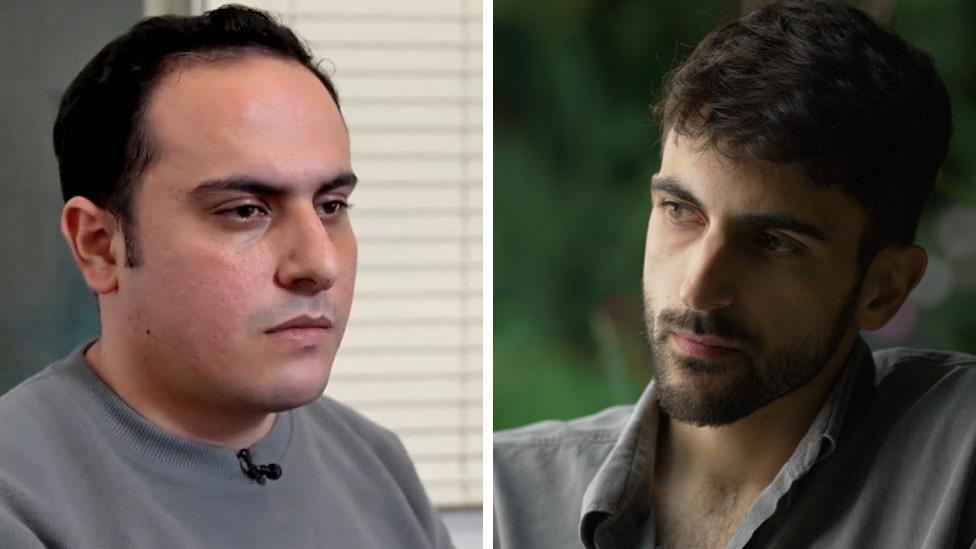
- Published4 October 2024
